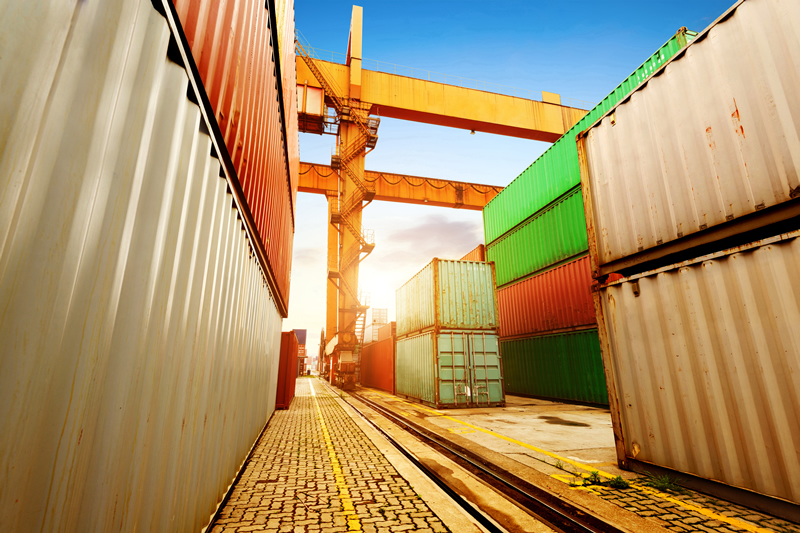Research Article Offers Impact Of Alternative Shipping Fuels
8
A recent study published in the online journal "Environments" assessed the environmental impact of eight alternative fuels in international shipping, comparing marginal and average emissions. The primary focus of the study was driven by global warming and environmental concerns, aiming to identify the most sustainable alternative among candidate fuels.

The research utilised life-cycle analysis (LCA) to evaluate the environmental impact of various fuels, emphasizing the importance of considering marginal emissions in predicting the effects of large-scale fuel transitions. The study compared marginal and average emissions for eight marine fuels, revealing non-intuitive results regarding biofuels. Despite significantly lower average emissions (19-73 kg CO2/MJ) compared to conventionally used fuel oils (169-175 kg CO2/MJ), biofuels exhibited equally or higher marginal greenhouse gas emissions (162-270 kg CO2/MJ propulsion). This discrepancy was attributed to the limited availability of climate-efficient biofuels, indicating that a large-scale shift to biofuels would not presently lead to substantial reductions in the shipping industry's climate impact. The study highlighted the following marine fuels:
- High-sulfur fuel oil
- Very-low-sulfur fuel oil
- Marine gas oil
- Liquified natural gas
- Biomethane
- Biomethanol
- Fossil methanol
- Hydro-treated vegetable oil
International shipping has grown significantly during the past three decades because of the globalisation of markets and the lower fuel consumption of shipping compared to other transportation options. Nowadays, more than 80% of all globally traded goods are transported via international shipping.
The study's findings indicate a potential risk due to the current higher demand for bio-based fuels compared to their supply. This situation raises concerns about the greenhouse gas (GHG) emissions of marginal biofuels, which are considerably higher than their average emissions. This consideration is crucial before embarking on a rapid, large-scale fuel switch, particularly in industries like shipping. Although biofuels have the potential to significantly reduce GHG emissions in shipping, achieving this requires a substantial reduction in marginal emissions from biofuel production, possibly through the use of more sustainable feedstocks.
The comprehensive Life Cycle Analysis (cLCA) suggests that substituting fossil oil products (VLSFO, MGO, and HSFO) with biofuels or LNG currently yields only limited positive climate impacts (e.g., with biomethane) or is directly counterproductive (as seen with biomethanol and HVO sourced from dedicated crops instead of residues). To meet the climate goals of the maritime industry, additional measures are essential. These include more climate-efficient biofuel production, the development of more energy-efficient ships, a reduction in shipping volumes, and the implementation of carbon capture techniques. In the long term, the adoption of climate-neutral electrochemical fuels, such as hydrogen and ammonia, is deemed crucial for achieving sustainability objectives. The paper reports marginal emissions values of:
- 169-220 kg CO2/MJ for Biofuels
- 162 kg CO2/MJ for Biomethane
- 180 kg CO2/MJ for Liquified natural gas
- 148-262 kg CO2/MJ Conventional bunkers
The full report can be found online at MDPI.com being created by Gustav Krantz, Christian Moretti, Miguel Brandão, Mikael Hedenqvist and Fritjof Nilsson and is available here https://www.mdpi.com/2076-3298/10/9/155.
The need to demonstrate environmental responsibility is key for today’s marine and offshore industries. Charterers and the public demand high standards of performance and reliability. Fuels and exhaust gas emissions are also the subject of international, regional and national controls. The most significant is IMO MARPOL Annex VI – Regulations for the Prevention of Air Pollution from Ships, which also applies to mobile offshore drilling units and other oil industry platforms.
#protea #emissions #monitoring #cems #ftir #gas #analysers #shipping #marine
Other Articles
Carbon Capture Utilisation & Storage (CCUS) In 2026
16
Global Underground CO2 Storage Data Offers Hope Amid Rising Emissions
01
IMO Postpones Adoption Of Global Net-Zero Shipping Framework
04
Pioneering Carbon Capture Projects Ready For Construction
03
Methanol & Ammonia Deemed Ready As Zero-Emission Shipping Fuels
01
Carbon Capture Storage Reaching A Turning Point In Decarbonisation
13
CCS To Capture 15% Of Shipboard Carbon Emissions By 2050
29
Global Shipping Industry Struggles To Navigate Net Zero Transition
21
Carbon Capture Surges as Economics Policy & Industry Demand Align
14
GHG Emissions At Ports On The Rise Despite Initiatives
07
